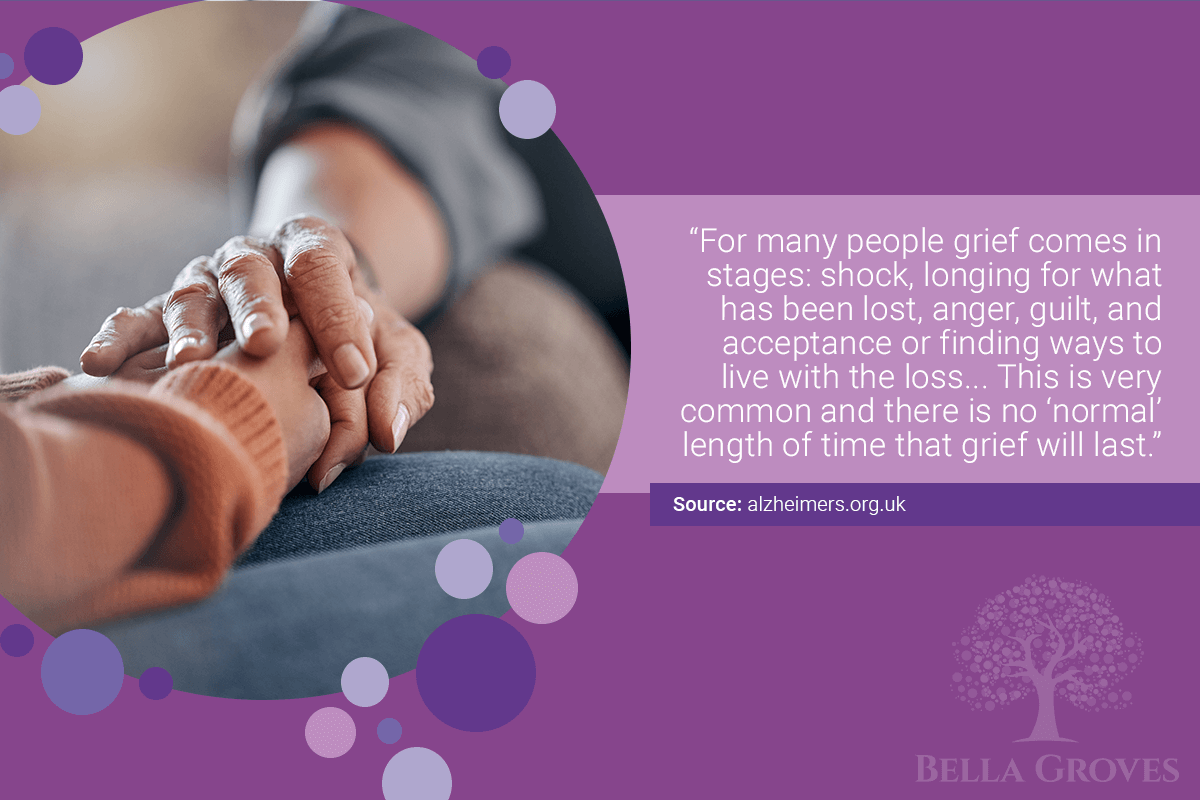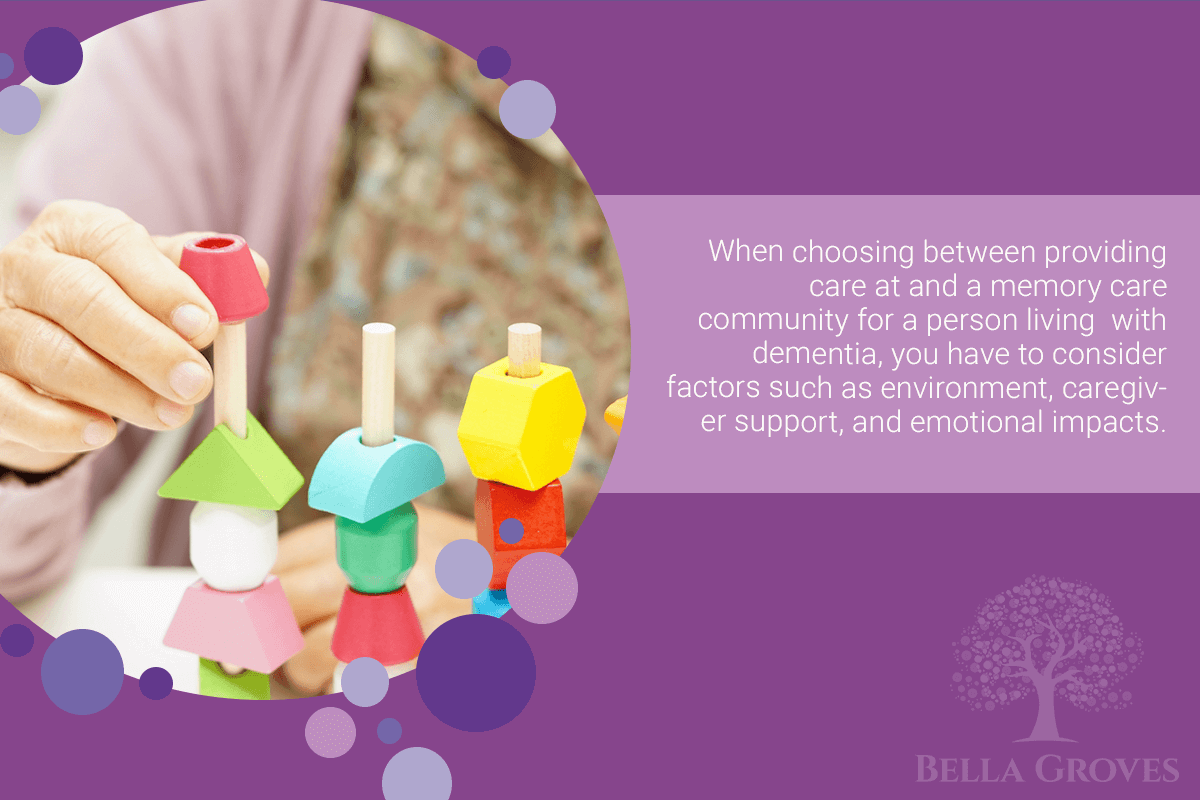
Finding Grief Support After Losing Someone You Love
Losing a loved one is never easy, but when your loved one has been battling dementia, the grief that follows their passing can feel even more overwhelming. The long goodbye that dementia imposes during each stage often leaves care partners and family members feeling emotionally drained and uncertain about where to turn for support.
If you’ve found yourself in this situation, know that you’re not alone. Bella Groves is here to help you find the grief support you deserve. Our team understands the unique challenges of grieving a loved one with dementia. Below, we provide practical steps for finding support, caring for yourself and your family, and coping through this difficult time.
Understanding Dementia and Its Impact
Due to the significant changes that dementia causes, it creates a unique form of grief; the grieving of the person that they once were as they continue to progress through each stage of dementia.
Caring for someone with dementia can be a long, challenging journey. Family members and care partners often face emotional and physical stress. The continual adaptation to new challenges, combined with the eventual loss, can leave families feeling isolated and overwhelmed.
The Grieving Process
Stages of Grief
The grieving process is different for everyone, but most people experience some version of the five stages of grief—denial, anger, bargaining, depression, and acceptance.
When grieving someone with dementia, these stages might not occur in a linear fashion. In fact, they often do not. Families we have worked with consistently report that they experience different stages of grief at the same time. You may feel anger and acceptance simultaneously or keep moving back and forth between stages.
Coping Mechanisms and Support Options
Finding effective coping mechanisms is crucial during this difficult time. Some people find solace in talking to grief counselors or joining support groups where they can share their experiences and hear from others who are going through similar experiences. Others may benefit from individual therapy sessions that provide personalized strategies for managing grief.
Finding Grief Support
Professional Support
Grief counselors and therapists are specially trained to help you process your feelings and develop healthy coping mechanisms. Look for professionals who have experience dealing with dementia-related grief, as they will understand the unique challenges you face.
Community Support
Online forums, local support groups, and social media communities can also offer valuable support. These spaces provide an opportunity to connect with others who have walked a similar path. Sharing your story and hearing others’ experiences can provide comfort and reduce feelings of isolation.
Self-Care for Care Partners and Families
Self-care is often neglected when you’re caring for someone else. Now is the time to focus on your own well-being. Engage in activities you enjoy, whether reading, gardening, or simply taking a walk. Ensure you get enough rest, eat well, and allow yourself time to grieve.
Practical Tips for Coping
Establish Daily Routines
Maintaining a daily routine can provide a sense of normalcy and control during a chaotic time. Simple activities like having a set time for meals, exercise, and relaxation can help structure your day and provide small but vital moments of comfort.
Remembering and Honoring Your Loved One
Finding ways to remember and honor your loved one can also bring peace. Create a memory box with photos and mementos, write letters to them, or plant a tree in their memory. These acts can help you feel connected to your loved one while celebrating the life they lived.
Some of the family members we have supported at Bella Groves have returned on their own terms and in their own timelines to visit or even volunteer and give back to the community and team that supported them initially. In many ways, this is not only honoring the memory of their loved ones but it also helps them to continue processing and making sense of the journey of dementia without the weight of caregiving. This retrospective learning can bring the surprising benefit of healing and perspective that wasn’t as accessible during caregiving.
Advocate for Yourself
It’s important to advocate for your own needs during this time. Don’t be afraid to ask for help from family members, friends, or professional services. Setting boundaries and communicating your needs clearly can help you manage your responsibilities and emotions more effectively.
Grieving the loss of a loved one is a uniquely painful experience, but you don’t have to go through it alone. Seeking grief support, whether through professional counseling, community groups, or self-care, can make a significant difference in your healing process. Remember, it’s okay to ask for help and take the time you need to grieve.
If you’re feeling overwhelmed, don’t hesitate to contact our team at Bella Groves. With supportive resources and a compassionate community, we’re here to help you through this difficult time. Together, we want to help you find ways to honor your loved one and move forward with hope.
Contact us today to learn more about how we can support you on your dementia journey and help you find the grief support you need.


